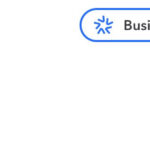Navigating the world of online banking requires understanding the fine print, especially when it comes to interest rates and access to your funds. Wsfs Online Banking provides a suite of digital tools designed to make managing your finances easier and more efficient. To help you make informed decisions, it’s crucial to understand the disclosures associated with deposit accounts, particularly the Annual Percentage Yield (APY) and conditions surrounding early access to your money. This guide breaks down the key aspects of WSFS Bank’s disclosures, ensuring you have a clear picture of what online banking with WSFS entails.
Decoding WSFS Bank Interest Rates: Maximizing Your Savings
Understanding interest rates is paramount when choosing a savings account. WSFS Bank offers tiered interest rates, designed to reward higher balances with greater returns. As of March 01, 2025, these rates are structured to ensure that you benefit more as your savings grow. Let’s delve into the specifics of these APY tiers:
Savings Account APY Tiers Explained
WSFS Bank’s tiered APY system for savings accounts means the interest rate you earn is dependent on your account balance. This structure encourages growth and rewards savers with progressively better rates. Here’s a breakdown of the APY tiers effective as of March 01, 2025, though these are subject to change:
- Balances from $0.01 to $9,999.99: Earn an APY of 0.03%. This tier is the starting point, providing a base interest rate for lower balances.
- Balances from $10,000 to $24,999.99: Step up to an APY of 2.10%. As your savings reach this level, your returns significantly increase.
- Balances from $25,000 to $49,999.99: Achieve an APY of 2.35%. Continued growth in savings yields even better interest earnings.
- Balances from $50,000 to $99,999.99: An APY of 2.60% is offered at this tier, rewarding substantial savings with competitive rates.
- Balances of $100,000 and greater: Maximize your returns with the highest tier APY of 3.60%. This premium rate is designed for those with significant savings.
It’s important to remember that these APYs are annual and subject to change. Additionally, any fees assessed to your account can reduce your overall earnings. These rates apply to personal accounts, ensuring individual savers can take full advantage of these tiered benefits.
Certificate of Deposit (CD) Rates and Terms
For those looking for potentially higher returns and are willing to commit their funds for a fixed term, WSFS Bank offers Certificates of Deposit (CDs). CDs typically offer higher interest rates compared to regular savings accounts in exchange for less liquidity.
The interest rate and APY for WSFS Bank CDs, as of March 01, 2025, are also subject to change. A critical aspect of CDs is understanding the penalties for early withdrawal. If you need to access your funds before the CD term matures, penalties will apply. These penalties are structured as follows:
- 6-month term CD: Early withdrawal penalty is equivalent to 3 months’ interest.
- 7-12 month term CD: Early withdrawal penalty is equivalent to 6 months’ interest.
- 13+ month term CD: Early withdrawal penalty is equivalent to 12 months’ interest.
These penalties are designed to discourage early withdrawals and compensate for the agreed-upon term length. It’s crucial to consider your liquidity needs before investing in a CD. Like savings accounts, fees could also reduce earnings on CD accounts, and additional restrictions may apply based on the specific CD product.
Early Access to Your Funds: WSFS Bank’s Early Pay Explained
WSFS Online Banking goes beyond just savings and CDs, offering features like Early Pay to enhance your financial flexibility. Early Pay allows you to potentially access your direct deposit funds up to two days earlier than your scheduled payday. This can be a significant benefit for managing cash flow and unexpected expenses.
How Early Pay Works: Timing and Eligibility
Early Pay is contingent on your employer or payer submitting their payroll or benefit payment file to WSFS Bank at least two days prior to the intended payment date. WSFS Bank then processes these Automated Clearing House (ACH) transactions and may make the funds available to eligible clients up to two days early.
Eligibility for Early Pay is based on having an eligible direct deposit, which WSFS Bank defines as ACH transactions identified as compensation for employment or government benefit payments, based on the transaction entry description.
Eligibility and Important Considerations for Early Pay
While Early Pay is a valuable feature, it’s essential to understand its limitations and conditions:
- Dependence on Payer Submission: The timing of early fund availability depends entirely on when your payer submits their payment file. WSFS Bank cannot guarantee early access if the file is submitted late or on time.
- Variable Timing: The availability of funds may vary between pay periods, even from the same payer, depending on their submission schedule.
- Confirm Available Balance: Always verify your Available Balance before making withdrawals or purchases, as WSFS Bank does not guarantee early credit.
- Exclusions: Non-payroll payments, tax payments, and other automated payments may not be eligible for Early Pay.
- Right to Cancel: WSFS Bank reserves the right to cancel Early Pay at any time without prior notice. Similarly, you can cancel Early Pay by contacting WSFS Bank.
- New Account Eligibility: New accounts must be open for 30 days before becoming eligible for Early Pay.
In conclusion, WSFS Online Banking provides a robust platform for managing your finances, offering both competitive interest rates on savings and CDs, and convenient features like Early Pay. Understanding the disclosures related to these services empowers you to utilize WSFS Online Banking effectively and make the most of your financial resources.

